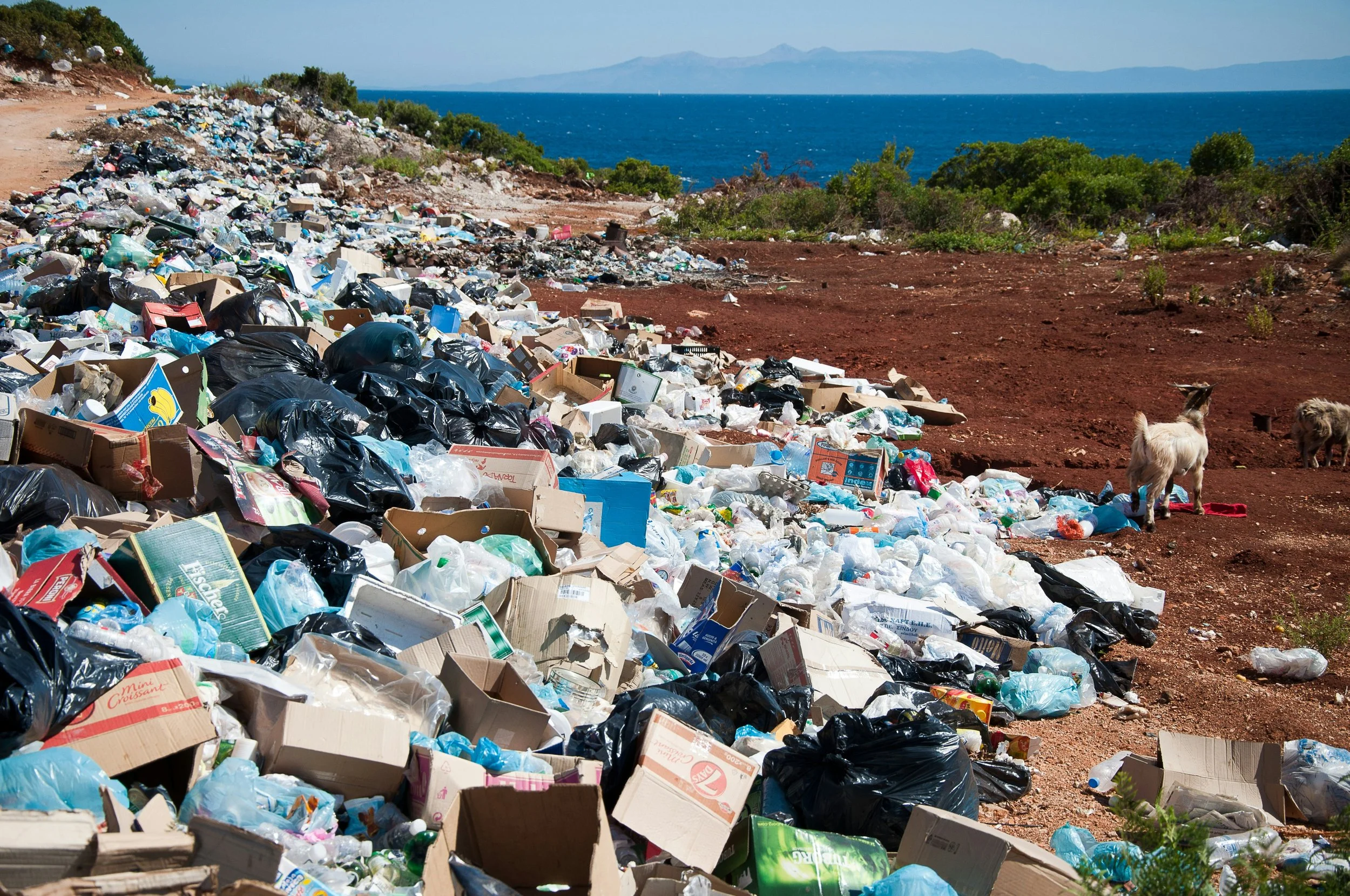The Fire That Shapes the Clay - The faults of Convenience Culture
By: Allison Gee
Flushed away by distraction, ease, and emotion, most people in today's society never find out who they truly are. This is highly due to the fact that our society runs on a convenience culture. This way of life prioritizes ease, speed, and instant access—often at the expense of depth, sustainability, and long-term value. The technological revolution that we are all living through is a key factor in the shift to a society that prioritizes convenience. Although convenience culture proves to be more efficient, it comes at the cost of the environment, societal behaviors, and the lives of many.
To start, convenience culture causes increased waste, resource depletion, and poses threats to civilians, which not only leads our country into overconsumption but will also have long-lasting effects on our environment. Fast Fashion and Fast Food both rely on single-use items along with excessive plastic packaging, which will all eventually end up in landfills, decreasing biodiversity. It is said that 40% of plastics in landfills are for single-use purposes only (Cohen, Dianna). This is only one example of how wasteful convenience culture can be and the long-lasting effects it will have on our society. Convenience culture also supports the demand for resources, and anyone who has listened along in science class knows our resources are limited. Rapidly produced items are often lower quality and filled with harmful chemicals. Assistant Professor of Environmental Chemistry in the School of Mathematical and Natural Sciences, Beth Polidoro, states, “Environmental health is public health” and “It’s not just about saving the planet, it’s about reducing contamination in our own bodies”. With the boost in convenience culture, our products are only becoming more contaminated with chemicals to meet the increasing demand for efficiency.
Landfill near a beach in Albanie. Photo by Antoine Giret, Unsplash
To get further into detail, convenience culture impacts how we relate to people. The demand for efficiency has promoted the exploitation of laborers, created shallow interactions between people, and prompted dependency. An article picking apart a report done by Oxfam, a global non-profit working to end labor inequality, displays the gruesome treatment of employees at Walmart and Amazon. These are two of the mainstream stores making slightly under $2.5 trillion in revenue, and their success reflects our culture. They have been accused of pressuring employees to work faster by using intimidation tactics and dictating their wages, as they have been accused of having monopsony power (Pizzigati, Sam). Unfair treatment of employees is okay in a market where buyers do not care, and that is what convenience culture promotes. Convenience culture has an impact on interpersonal relationships and interactions as well. Now, many interactions are transactional, and many hide behind screens. Individualism is growing more than community, and people are forgetting how to relate to each other. If we are always choosing what is easiest, are we ever choosing what is real? Our society is changing its behaviors because we are becoming dependent on the easy and the convenient.
Several people on their phone’s in public spaces. Photo by Rasheed Kemy, Unsplash
On the other hand, many argue that convenience culture creates opportunity for individuals to shape and express themselves; however, this could not be further from the truth. The need for convenience has not only caused people to expect instant gratification, but it has also scattered their attention spans, decreased their basic skills, and skewed their work ethic. Truly, convenience culture normalizes disconnection within oneself and the world around them by providing constant distractions. Distraction is a daily battle for everyone with a cell phone, and it is normalized to spend an extensive amount of time scrolling. Teenagers, especially, are frequently around each other, and when they are not, they are attached to a device feeding them information about each other, notifications pounding their screens faster than a fingerling can swim. However, the distraction from technology has proved to cause direct changes in the brain and has been linked to heightened aggression, detachment from reality, and anxiety and depression in teens (Schlott, Rikki). Therefore, people can't express themselves without truly knowing themselves. Author Paul Gruchow writes that “sometimes to be alone is the most difficult challenge of all,” and this proves to be true because without constant distraction and pressure, individuals are forced to learn who they truly are. It is the difficult moments in life that grow people the most. Similar to how a muscle cannot grow without breaking down, and how a fire must burn to cause new growth. Convenience culture has rewritten the story and caused many to stray from discomfort. The need to learn basic skills is gone because now there are services for anything someone does not want to do, the longing for a spiritual connection can now be covered up by distraction, and many deem types of physical activity as inconvenient (hence the invention of the escalator). This is undoubtedly one of the main reasons why anxiety, depression, and obesity rates are at an all-time high (Segal, Yarden). A society marked with convenience is a society filled with lost people.
Photo by K. Mitch Hodge from Unsplash
Imagine a world with full convenience. Anything anybody wants is within reach, and they can acquire it without lifting a finger. While some might say this sounds like heaven, in every situation, this will lead to a dull life. A life of untold stories and a life never lived. A life without hurt an a life without joy. A life without pain and a life without growth. Convenience culture is ruining the environment, changing societal behaviors and robbing millions of people of living their lives. The only true solution to this issue is for individuals to learn who they are because once they learn who they are, they can learn about the people and the world around them. Convenience is not always bad, but when engraved into our society, it becomes a dangerous expectation. So be one of the few who choose to pursue the inconvenient. Be the fire that shapes the clay.
Works Cited
Cohen, Dianna. “Single Use Plastics.” Plastic Pollution Coalition, 6 Sept. 2022, www.plasticpollutioncoalition.org/guides/singleuseplastics/healthimpacts. Accessed 17 Apr. 2025.
Frost, Kayla. “The Inconvenient Consequences of a Culture of Convenience.” The Inconvenient Consequences of a Culture of Convenience | ASU News, 13 Oct. 2018, news.asu.edu/20181003-solutions-asu-researchers-plastics-pollution-recycling. Accessed 17 Apr. 2025.
Pizzigati, Sam. “Walmart and Amazon Are Exploitative and Destructive; There’s an Alternative.” Inequality.Org, 1 Oct. 2024, inequality.org/article/retail-kings-are-exploitative-and-destructive/. Accessed 17 Apr. 2025.
Schlott, Rikki. “Smartphone Use Leads to Hallucinations, Detachment from Reality, Aggression in Teens as Young as 13: Study.” New York Post, 23 Jan. 2025, nypost.com/2025/01/23/lifestyle/smartphone-use-leads-to-hallucinations-aggression-in-teens-study/. Accessed 17 Apr. 2025.



